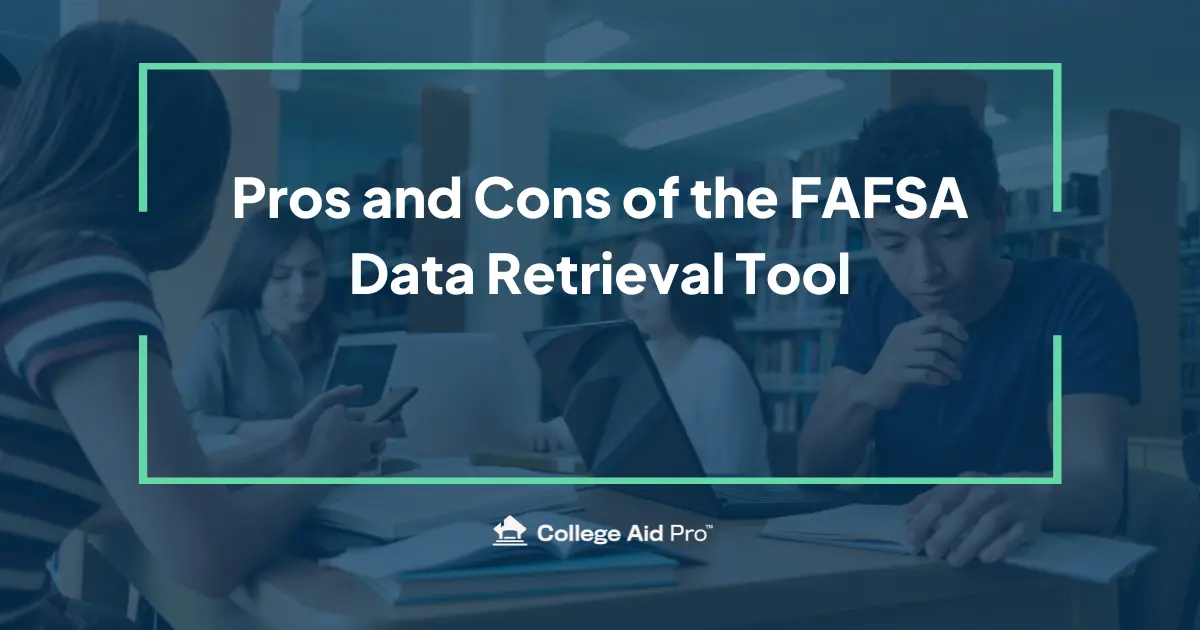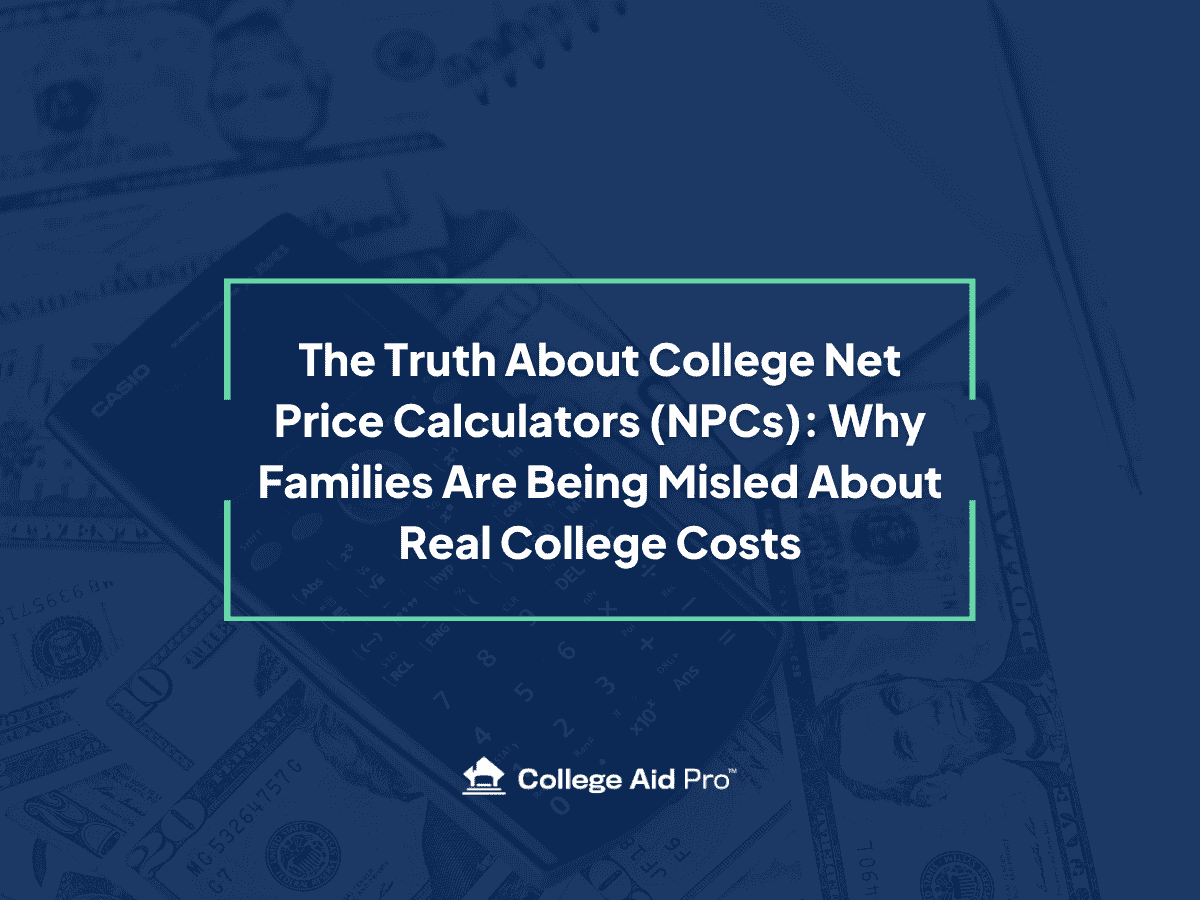The FAFSA leverages a tool called the IRS Data Retrieval Tool (IRS DRT) to make completing the form easier for families and college-bound students. The tool electronically pulls your tax information using past IRS tax filings. It’s advertised that the IRS DRT is as easy as “clicking a button”. The IRS DRT can be helpful, but there are also a few drawbacks to be aware of before using it. Before you push the easy button, let us explain some benefits and drawbacks.
The Pros of the IRS Data Retrieval Tool
One of the primary benefits of the IRS DRT is that leveraging it during your FAFSA filing can help you avoid the verification process. According to finaid.org, if a student uses the IRS DRT to transfer their information when filing, and makes no additional modifications, their FAFSA will not be subject to the verification process. Of course, this process isn’t anything to be afraid of! We cover everything you need to know about FAFSA verification here.
Another benefit of the IRS DRT is that it makes the FAFSA process notably faster. For families who are already drowning in senior year deadlines, activities, and responsibilities – this can be a major “pro”!
Because the IRS DRT pulls all your information electronically, you don’t have to worry about accidentally typing the wrong numbers into your form. This eliminates clerical mistakes that might be financially costly in the long run, or take a significant amount of time to correct.
Learn more about the verification process: IDOC and FAFSA Verification
The Cons of the FAFSA Data Retrieval Tool
As wonderful as it can be to automate the FAFSA process with the IRS DRT, there are a few drawbacks to consider before moving forward. First and foremost, you can’t see the data that is imported from the IRS to verify that it is, indeed, accurate. The IRS DRT was designed to maintain the privacy of students and parents. As such, no financial information is publicly visible during the filing process.
From a security standpoint, this makes sense. You wouldn’t want someone who wasn’t your student attempting to file and leverage the IRS DRT and gain access to your personal financial information as a form of fraud. However, from the perspective of a parent or student trying to make sure their information is accurate, and their application is up to snuff – this is a bit of a clunky design feature.
Additionally, the IRS DRT makes the FAFSA incredibly difficult to update if there are mistakes made during the data retrieval process. Students and families will need to go to each individual college they apply to in order to submit revisions or updates. Depending on how many schools your student is applying to, this may be very time consuming.
Worth Remembering
Before deciding to use the IRS DRT, it’s worth mentioning a few cases where it may not make sense to use this tool. Couples who file their taxes as “married filing separately” can’t use the IRS DRT at all. Additionally, families with more complex financial situations (for example, divorced or separated families) should likely submit manually to ensure that the information submitted through the FAFSA is up to date and accurate.
Additionally, if for some reason your financial information on the FAFSA doesn’t exactly match what’s on your most recent tax return, the IRS DRT won’t work. The tool, while helpful, can be somewhat finicky. It’s possible that in future years the Department of Education will iterate on the technology to make it more robust and, frankly, easier to use. However, for now, the tool is still relatively new and has several kinks to work out before it’s a perfect solution for all college-bound filers.
Need Help?
Have a specific question? Join our upcoming Office Hours Q&A webinar to get your questions answered and learn more about the FAFSA process! We meet bi-weekly to answer the college questions that are keeping you and your student up at night. Bring your questions to ask live, or submit them in advance!
Want More FAFSA Information?
If filing your FAFSA is giving you and your family a headache, we’re here to help! Don’t miss our blog library section dedicated to FAFSA questions and information, or check out our free resources library to expand your FAFSA and college funding know-how. You can also sign up for MyCAP completely free to start your college search, and financial education journey. Our team of college experts focus on providing regular content updates to our members in the form of blog posts, videos, webinars, and more.



